Quality UTME Lessons for Art Students
Individual and group classes • Student-friendly rates
📞 Contact Ayomiposi on WhatsApp now
🎥 We’re cooking something delicious for you on our YouTube channel. In the coming days, you will learn SSCE literature texts like you're in class 📚✍🏽
Be part of this new journey we are about to embark on.
🔔 Subscribe Now
“Vanity” by Birago Diop is a deeply reflective and emotionally charged poem that addresses the growing disconnect between modern Africans and their ancestral heritage. In a solemn and questioning tone, the poem explores the consequences of ignoring the voices, values, and wisdom of those who came before us.
It portrays the modern African as spiritually deaf—cut off from a long lineage of knowledge, sacrifice, and cultural richness—and warns of the futility of lamenting suffering in the present while having neglected the cries and guidance of the past.
Structured in a series of reflective questions and sorrowful declarations, the poem acts like a spiritual reckoning. It points to the “vanity” of contemporary pursuits that lack grounding in ancestral consciousness. The poet seems to ask: If we reject our roots, who will listen when we, in turn, cry out? The repetition of lines like “What heart will listen to our clamouring?” and “If we cry roughly of our torments” echoes a collective grief, one born out of disconnection and cultural amnesia.
Birago Diop, the mind behind this introspective piece, was born in Senegal in 1906. He trained and worked professionally as a veterinary surgeon. Strikingly, he is best known for his literary contributions that champion African oral traditions and spiritual continuity.
Writing in French, Diop emerged during the Negritude movement, a literary and ideological trend in the mid-20th century that celebrated black identity and culture in the face of racial and colonial denigration. His poetry is known for weaving traditional African beliefs, ancestral voices, and folkloric elements into modern literary forms.
Diop’s concern with ancestral matters was both nostalgic and purposeful. He believed that the emerging African personality, shaped in the postcolonial period, must not abandon the spiritual and philosophical grounding inherited from the past. For him, the modern African cannot afford to treat ancestral memory as irrelevant or outdated. Instead, the ancestral legacy must serve as a compass, helping Africans to distinguish between meaningful pursuits and those that are, ultimately, vain.
Thus, “Vanity” by Birago Diop does more than mourn the erosion of ancestral values. The poem warns that progress without remembrance is perilous, and that a future disconnected from its past is bound to repeat its mistakes. It is within this context—historical, cultural, and spiritual—that that the poem comes to life.
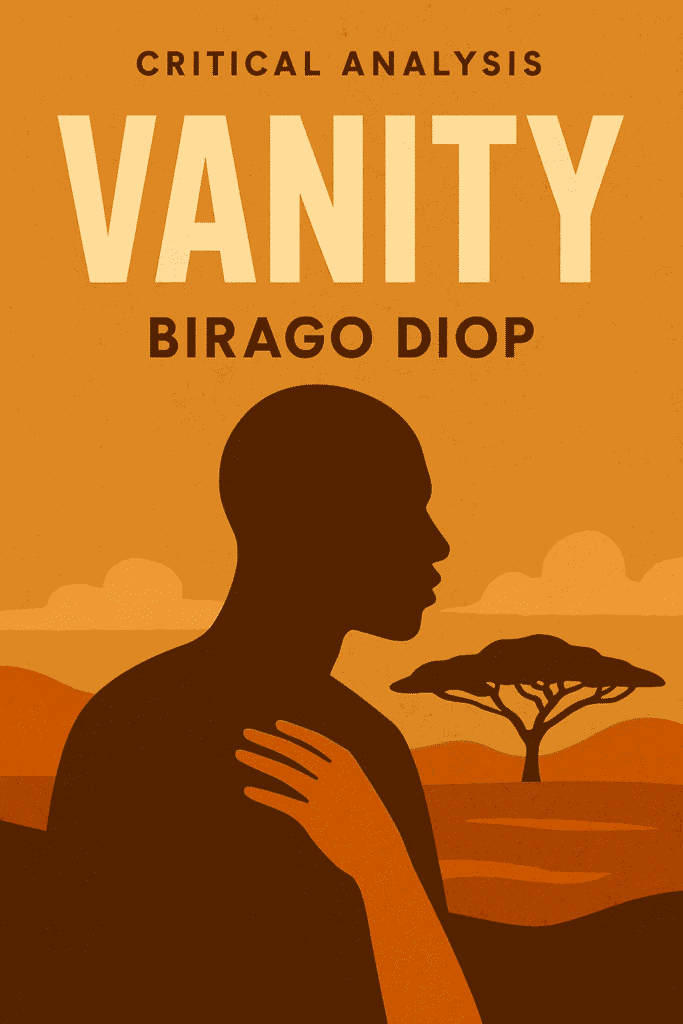
Analysis of “Vanity” by Birago Diop
“Vanity” by Birago Diop is a 30-line poem shaped as a lamentation. It functions as an elegiac reflection on the cultural and spiritual disconnection between modern Africans and their ancestral roots. This mood of lament is masterfully conveyed through a repeated use of rhetorical questions and synecdoches, which together form the structural and emotional backbone of the poem. In fact, out of the poem’s 30 lines, as many as 22 are repetitions, either entirely or in part.
The rhetorical questions are central to the poem’s stylistic fabric. Questions such as “What heart will listen to our clamouring?” and “What ear to our sobbing hearts?” do not necessarily seek answers. They are posed to provoke reflection, underline neglect, and highlight the poet’s disappointment in the direction modern African societies have taken. They expose a growing apathy and abandonment of deeply rooted values. Coupled with synecdochic expressions—such as “our large mouths,” “our plaintive throats,” and “our sobbing hearts”—these rhetorical questions render the poem emotionally charged and symbolically rich. The individual becomes representative of the collective, and the body becomes a vessel of inherited grief.
This deliberate repetition is not just structural but also deeply symbolic. It mimics ritualistic chants that characterise the oral tradition central to African storytelling and spiritual practices. Diop uses this to bridge form with function in that his structure mirrors the very traditions he fears are being lost. Moreover, the poem’s persistent repetition dramatises the act of crying out, of pleading, of yearning for connection with the past that is slipping away.
One of the most profound lines in the poem appears at line 15: “When our Dead come with their Dead…” This line marks a shift in speaker perspective and introduces an important symbolic contrast. Up to this point, “our Dead” refers to ancestral figures: the forbearers who once guided African societies with wisdom and communal knowledge. The addition of “their Dead” introduces a new generation, suggesting that even those who rejected ancestral wisdom will leave behind their own lineage, one equally doomed to repeat the same ignorance unless change is made. This subtle shift renders the poem intergenerational. So, aside from what is lost, the poem also brings to scrutiny what will continue to be lost if this cycle of cultural disconnection persists.
“Vanity” by Birago Diop exemplifies Negritude in both content and passion. It is, essentially, a negritude romance, a lyrical celebration of African ancestral worth, fused with a strong warning against cultural alienation. The emotional energy behind Diop’s rhetorical lamentation is not incidental; it is deeply romantic in its veneration of the past. His idealisation of African ancestral legacy is not merely nostalgic. It is positioned as the necessary moral and spiritual compass for any meaningful future. Thus, the poem asserts that no formidable African progress can occur unless the foundational values and philosophies of the ancestral world are acknowledged, honoured, and aligned with modern living.
Poetic Devices in “Vanity” by Birago Diop
Lodgement Technique
The poem is presented like a reportage, a kind of formal complaint lodged by the persona, who stands in for ancestral values. This persona directs his complaint against the new African personality, who is being lured away by destructive external influences.
The complaint is metaphorically lodged before posterity, an invisible judge who will assess the consequences of this abandonment of cultural heritage.
This technique sets up a conflict between:
- “Our Dead” representing ancestral Africans, and
- “Their Dead” which is the metaphor for the new African personality, who has forsaken tradition.
Imagery
Diop’s poem is structured around vivid and symbolic visual imagery:
- Lines 1–5 depict cultural emptiness, a beggar-like existence caused by disconnection from traditional values.
- Lines 6–10 show the imbalance and confusion that come with abandoning one’s roots.
- Lines 11–14 portray generational anger and disappointment. The ancestral figures are deeply upset by the younger generation’s misdirection.
- Lines 15–19 highlight the new African’s deafness to ancestral warnings, symbolising a rupture in intergenerational wisdom.
- Lines 20–24 emphasise self-betrayal. The new African aligns with foreign ideologies at the expense of racial pride.
- Lines 25–30 present a final image of doom, that of cultural amnesia which leads to inevitable self-destruction.
Each image builds the case that assimilation and cultural neglect are forms of personal and collective peril.
Tone and Mood
The tone of “Vanity” by Birago Diop is judgmental and accusatory. The persona is not neutral; he strongly disapproves of the new African’s behaviour. His language is that of a deeply offended elder issuing a warning.
The mood of the poem is offensive and emotionally charged. The speaker’s agitation and sorrow show that, beyond mere criticism, the poem is a lament rooted in grief for lost values and a fading identity.
Figures of Speech in “Vanity” by Birago Diop
1. Rhetorical Questions
Rhetorical questions dominate the poem’s structure. As mentioned earlier, 22 rhetorical questions fill the poem. The repeated questioning gives the impression that the speaker is both frustrated and heartbroken, and the audience (modern Africans) is left speechless.
“Who then will hear our voices without laughter, Sad complaining voices of beggars?” (Lines 3–4) “What heart will listen to our clamouring? What ear to our pitiful anger…?” (Lines 11–12)
These questions suggest that the speaker believes no one will take the African voice seriously anymore because it has lost its grounding in ancestral wisdom.
2. Simile
Simile is used to illustrate the inner decay and loss experienced by a people who have turned away from their roots.
“... our pitiful anger
Which grows in us like a tumour
In the black depth of our plaintive throats.” (Lines 12–14)
Here, anger is compared to a tumour growing deep in the throat. The simile conveys that this anger is internal, festering, and harmful.
3. Repetition
Repetition plays both a musical and rhetorical function in the poem.
“If we tell, gently, gently…” (Line 1)
“If we cry roughly of our torments…” (Lines 6 and 28)
The conditional “if” phrases are repeated to create parallelism to drive home the futility of softly and harshly voicing one’s pain when ancestral connections are broken.
“In the air, on the water, where they have traced their signs…” (Lines 21 and 24)
"What heart will listen to our clamouring" (Lines 11 and 29)
"Just as our ears were deaf" (Lines 17 and 19)
4. Symbolism
Symbolism is prevalent throughout the poem. “Their Dead” in the poem symbolises ancestors. They are the ignored repositories of wisdom, culture, and spiritual guidance. Similarly, “cries,” “signs,” “voices” are symbolic of messages, traditions, and knowledge passed down by ancestors.
“They have left on the earth their cries,
In the air, on the water, where they have traced their signs.” (Lines 20–21)
This symbolic imagery says that the ancestors’ wisdom is still accessible, inscribed in nature and the world, for those who seek them.
5. Personification
The poem personifies abstract concepts to deepen the emotional impact of disconnection and neglect.
“Our pitiful anger…
Grows in us like a tumour…” (Lines 12–13)
Here, anger is treated as a living entity that grows and develops.
Additionally, the Dead are personified as entities capable of speech and communication:
“When they have spoken to us with their clumsy voices…” (Line 16)
6. Irony
There is strong dramatic irony in the speaker’s reflection on how the current generation is ignored just as they ignored their ancestors.
“Just as our ears were deaf
To their cries, to their wild appeals…” (Lines 18–19)
The irony lies in the cyclical pattern of neglect: the current generation weeps and complains but is met with the same disregard they once showed.
7. Parallelism
The poem makes frequent use of parallel sentence structures to enhance rhythm and drive home thematic points:
“If we tell…
If we cry…
What heart will listen…
What ear to our sobbing hearts?” (Lines 1–2, 6, 29–30)
8. Biblical Allusion
There is an instance of biblical allusion in the poem.
“For us, blind deaf and unworthy sons...” (line 22)
This line choes the biblical reference to the sons of Eli, who were deemed unworthy.
9. Synecdoche
Diop references body parts—ear, throat, voice, heart, eye—to stand in for entire human faculties and cultural responsibilities.
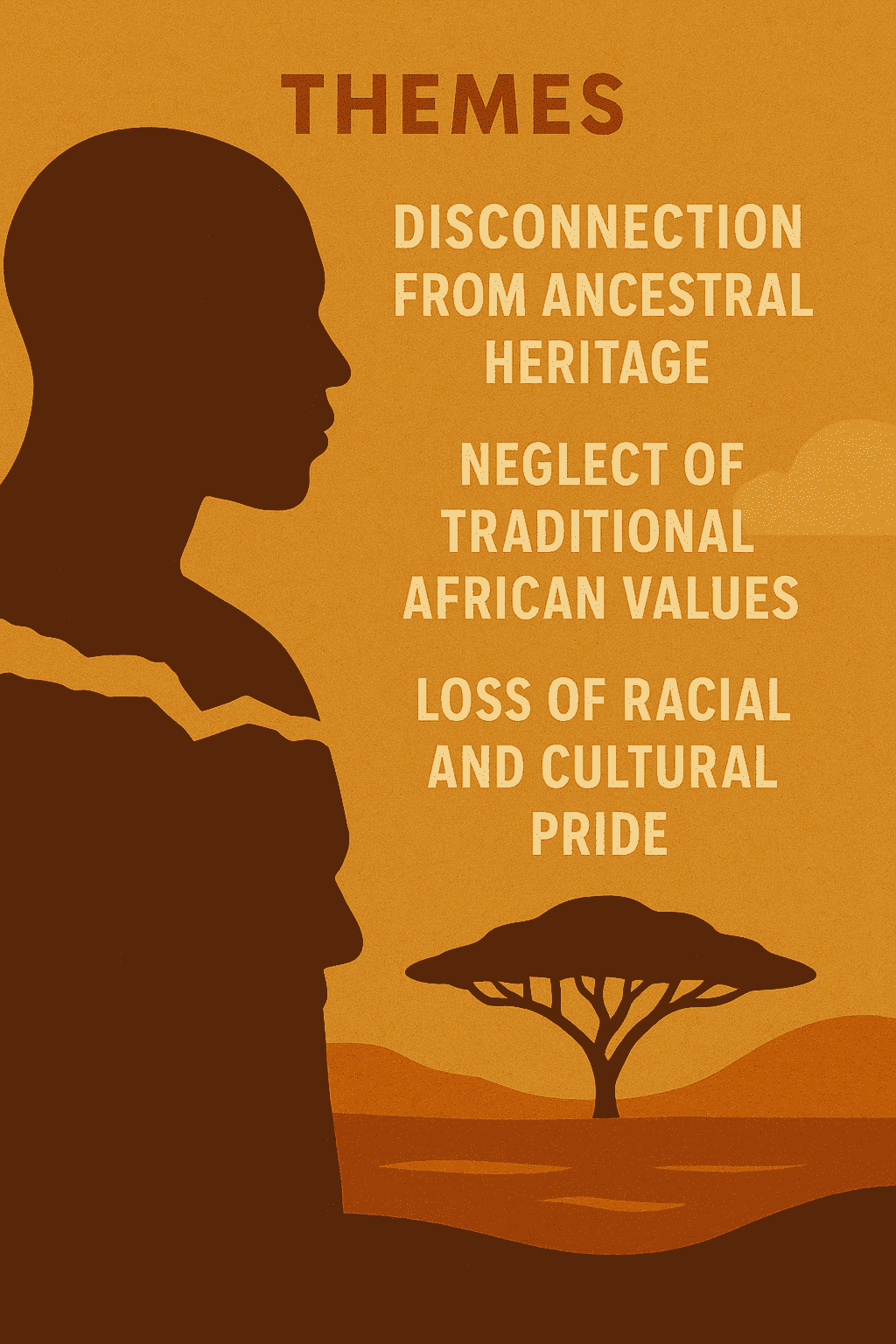
Themes in “Vanity” by Birago Diop
Disconnection from Ancestral Heritage
“Vanity” by Birago Diop laments a growing alienation between modern Africans and their ancestors. The poem frames the Dead as an active presence in the natural and spiritual world. They are described as having “left on the earth their cries” and “traced their signs” in the “air” and “on the water”. Despite these visible and audible traces, the living — “blind, deaf and unworthy sons” — are unable to perceive or respond.
This spiritual deafness underscores a significant theme: the loss of ancestral consciousness. By referring to the voices of the ancestors as “clumsy” and describing the living as having “never listened to their cries”, Diop criticises a society that no longer values the intergenerational bond that once anchored African societies. The poem implies that ancestral wisdom is essential for moral balance and identity, and without it, modern Africans become spiritually adrift.
This theme also resonates with African cosmology, where the ancestors are considered custodians of tradition and intermediaries between the living and the spiritual realm. Ignoring them amounts to cultural betrayal. In this sense, the poem mourns the spiritual vacuum created by colonial disruption and Western influence, which have alienated Africans from their roots.
Neglect of Traditional African Values
Diop presents the modern African as a figure who has recklessly abandoned the communal, moral, and cultural values that once defined African civilisation. By warning that the voices of today — “sad complaining voices of beggars” — are ignored and mocked, the poem illustrates how a loss of traditional values results in social ridicule and irrelevance. The rhetorical repetition of phrases like “Who then will hear our voices?” and “What heart will listen?” suggests that, without the foundation of ancestral ethics, the cries of the modern African hold no moral authority.
The traditional African values at stake include reverence for elders, respect for spiritual continuity, and a sense of communal responsibility. In precolonial African settings, the collective was placed above the individual. Families, clans, and communities functioned interdependently, guided by the wisdom of the elders and the spiritual insight of ancestors. However, in “Vanity”, this communal fabric is shown to be in tatters.
Moreover, the adoption of Western materialism and individualism, implied in the imagery of “big children” laughing at suffering, suggests a society that has replaced wisdom with superficiality, and empathy with selfishness. The modern African, in chasing foreign ideals, becomes a caricature — a laughing stock — who has traded dignity for emptiness.
Loss of Racial and Cultural Pride
Diop’s Vanity captures the tragic erosion of racial and cultural pride as a direct consequence of embracing Westernisation, blind materialism, colonial mentality, and cultural mimicry. These internalised ideologies corrupt the African’s self-image and uproot the communal values that once sustained African societies.
The poem critiques the modern African’s rejection of ancestral teachings and traditional wisdom as a self-inflicted humiliation. The “clamouring” and “sobbing hearts” represent a generation that seeks recognition and dignity but fails to receive it because it has lost the cultural bearings that once gave its voice moral authority. The African no longer speaks from a place of ancestral rootedness, but from a space of spiritual and cultural emptiness. Thus, the question “What heart will listen?” becomes emblematic of a disrespected voice, mocked by others because it no longer carries the solemnity of tradition. Where pride once came from being part of a living tradition, it is now lost in mimicry and spiritual dereliction.
Inevitable Downfall from Cultural Amnesia
The final stanzas of “Vanity” underscore a grim message: to ignore the wisdom of the ancestors is to invite destruction. Cultural amnesia results in moral disorientation and societal collapse. Diop constructs this theme through rhetorical repetition and ironic reversals. The living now cry out—“gently, gently” or “roughly”—but no one listens, just as they once refused to listen to the Dead. This poetic mirroring reveals a moral irony: those who neglect history are doomed to suffer the same silence they once imposed.
The line “Just as our ears were deaf to their cries” captures the heart of this theme. The ancestors pleaded, warned, and left signs but the living failed to respond. Now, in turn, the modern African is ignored, unheard, and unheeded. It is a tragic cycle of silence born out of neglect, a generational echo chamber of indifference and forgetfulness.
This cultural amnesia is deliberate, and thus its consequences are just. The word “Vanity” as the title hints at futility, pride misplaced, and efforts made without wisdom. The cries of the ancestors were meant to guide and protect. Disregarding them, Diop suggests, is not only arrogant but suicidal.
By ending with unanswered rhetorical questions—“What heart will listen… What ear to our sobbing hearts?”—the poem leaves readers with a haunting silence. The modern African personality, having forsaken ancestral guidance, is now alone in its grief, with no one left to listen—just as they did not listen when the Dead cried out. The imminent downfall is deserved when it blooms.
Receive Literary Updates through our Social Media Channels:
- WhatsApp: Literature PADI
- Telegram: Literature PADI
- YouTube: @literaturepadi
- Facebook: Literature PADI
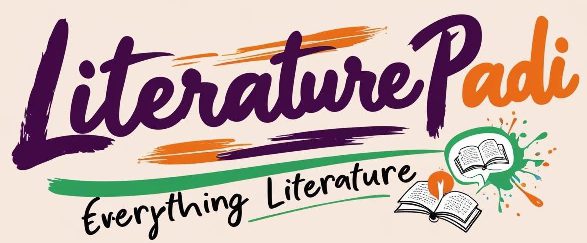
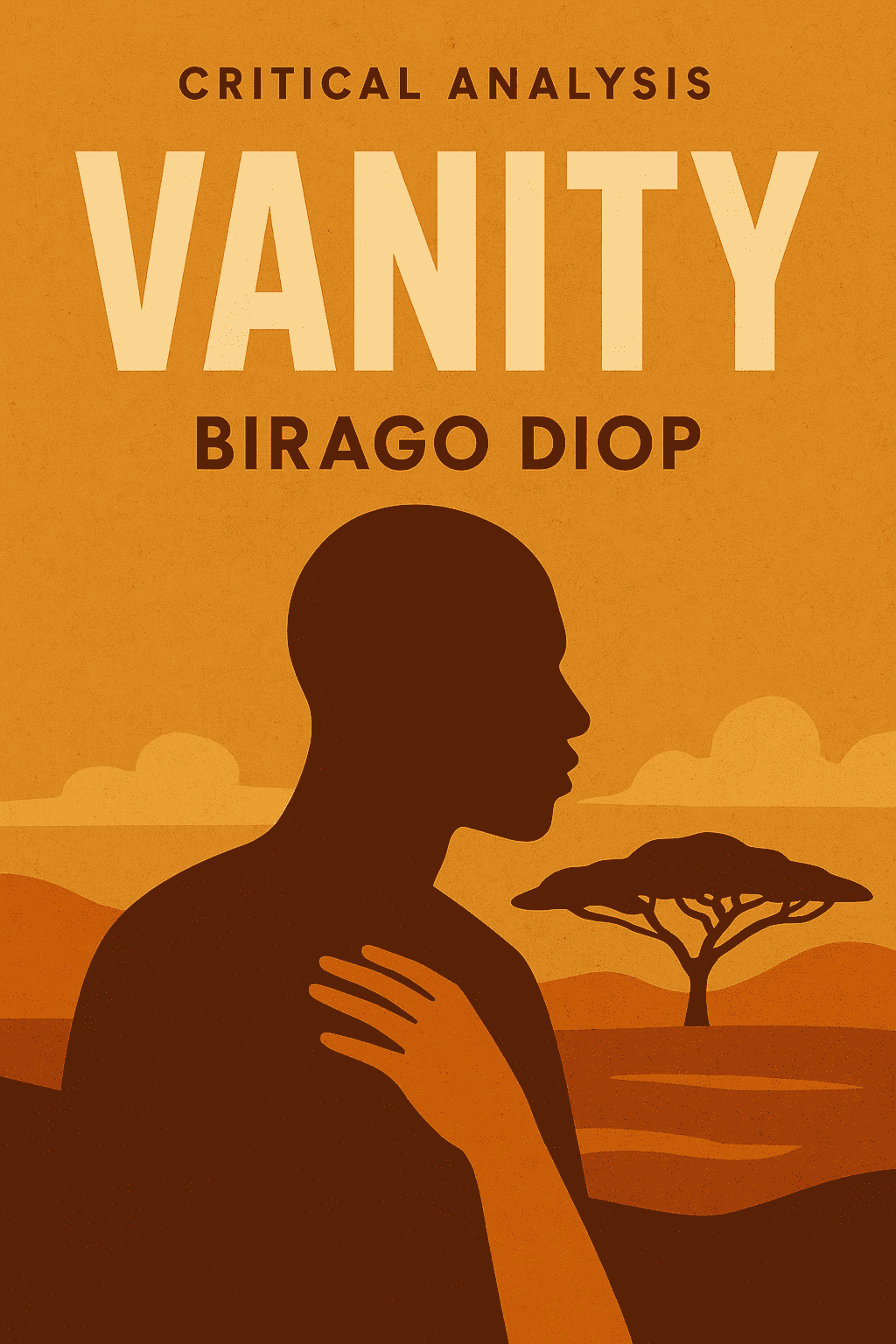


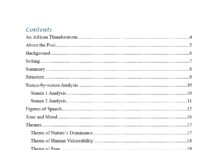


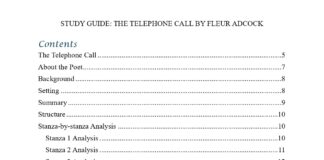
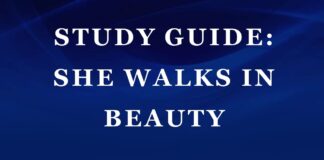
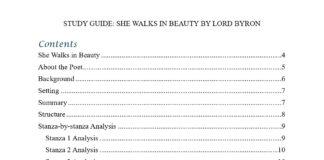
This poem, among several others, marks Birago Diop as a proponent of negritude, and it sets him as one of the prominent negritude poets in Africa. “Vanity” has been read and studied by students across the globe for exams among other things. It was recommended as part of the six African poems for 2016-2020 WASSCE. This makes it one of Diop’s most popular poems.